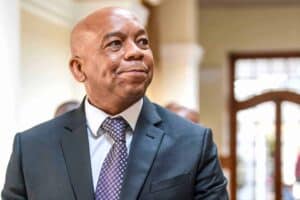A pre-emptive move aimed at mitigating delay in finalisation of new methodology.

In a surprise move, energy regulator Nersa’s electricity sub-committee (ELS) on Tuesday decided to extend its imminent stakeholder consultations on Eskom’s tariff beyond the next financial year to include those for 2024/25 as well.
(Eskom wants a total increase of 32.66% in 2023/24 and a further 9.63% in 2024/25.)
This was done to give certainty to electricity users about the tariff path for the next two years and as a risk-mitigating measure in case the new tariff methodology Nersa has proposed is not finalised by 30 September.
The decision, however, stopped short of any commitment to base the tariff determination on the current Multi-Year Price Determination methodology (MYPD4), as the regulator seems to be keeping its options open.
This comes against the background of calls by stakeholders to extend the month given for comment on the proposed methodology. The deadline is 29 July
At a recent public workshop Nersa full-time member for electricity Nhlanhla Gumede said there is no time to waste in finalising the new methodology as the current one is no longer appropriate.
He did not answer a question about the implementation date Nersa is working towards.
Approval of consultation paper
The meeting on Tuesday was held to approve the consultation paper on the tariff determination for 2023/24 that Nersa must publish on 1 August at the latest, according to an order of the High Court in Pretoria.
The order follows a tariff debacle that started with Nersa’s rejection of Eskom’s application for the fifth multi-year determination (MYPD5) covering the three-year period 1 April 2022 to 31 March 2025, because it was based on MYPD4.
Nersa held that MYPD4 was no longer valid as it was linked to the previous tariff period and expected Eskom to tweak its application on the basis of principles that would underpin a methodology that would be developed in the future.
Eskom obtained an urgent court order that forced Nersa to process the 2022/23 tariffs in accordance with MYPD4, which it did.
It also persisted with an application to have the rejection of its application reviewed and set aside.
Recently Eskom and Nersa reached an agreement that was made an order of court early in July, for Nersa to publish the application for 2023/24 by 1 August for public comment and reach a decision by 24 December, following MYPD4.
Court’s stance on tariff determination
Regarding the tariff determination for 2024/25, the court determined “if Nersa publishes a new pricing determination methodology and reviews all other related regulatory requirement[s] for the industry by 30 September 2022, Eskom shall submit a revised 2024/25 revenue application by no later than 1 June 2023 to Nersa for consideration and approval by 20 December 2023”.
This seems to be the reason for Nersa’s reluctance to extend the comment period for the new methodology. It was hoping to meet the 30 September deadline.
Even if the methodology itself is finalised by 30 September, Nersa will also have to satisfy the requirement to review “all other related regulatory requirements” by the same date.
Eskom recently listed at least nine documents that licensees are bound to, that must be reviewed before a new methodology can be implemented. These include the South African Grid Code and the South African Distribution Code, the Minimum Information Requirements for Tariff Applications, the Eskom Retail Tariff and Structural Adjustment Methodology and the Regulatory Reporting Manual.
It is not clear if any work has been done in this regard yet.
Lively discussions
During the ELS meeting Gumede said unless the new methodology is finalised by 30 September, Eskom would be unable to prepare its 2024/25 application on that basis.
Nersa’s full-time regulator member for piped gas Nomfundo Maseti asked why the application should be dealt with in a piecemeal manner.
She suggested that it is in fact one multi-year application that should be dealt with in terms of the current methodology.
Maseti warned that postponing the decision on the outer year may once again leave Nersa in a situation where the new methodology is not ready when expected.
Nersa full-time regulator member for petroleum pipelines Muzi Wiseman Mkhize asked whether the 30 September deadline is achievable and warned against implementing it while there are still many questions about it.
He said processing the application for both years may give Nersa “breathing space” to look at the proposed methodology “with fresh eyes” and an opportunity to reconsider anything “drastic” in it.
Compromise
Gumede, who chaired the meeting, was not in favour of the course of action and during a discussion Mkhize tempered his proposal, saying the consultation on both years can go ahead, and if the 30 September deadline is met, Nersa can still at that stage switch to process the application for the outer year according to the new methodology.
Maseti questioned whether that will be lawful.
After a 40-minute caucus the meeting reconvened and members voted in favour of a decision to proceed with consultation on the applications for both years.
Gumede was the only member who voted against the decision.
The publication of the consultation paper is expected within the next few days.
This article originally appeared on Moneyweb and was republished with permission.
Read the original article here.






